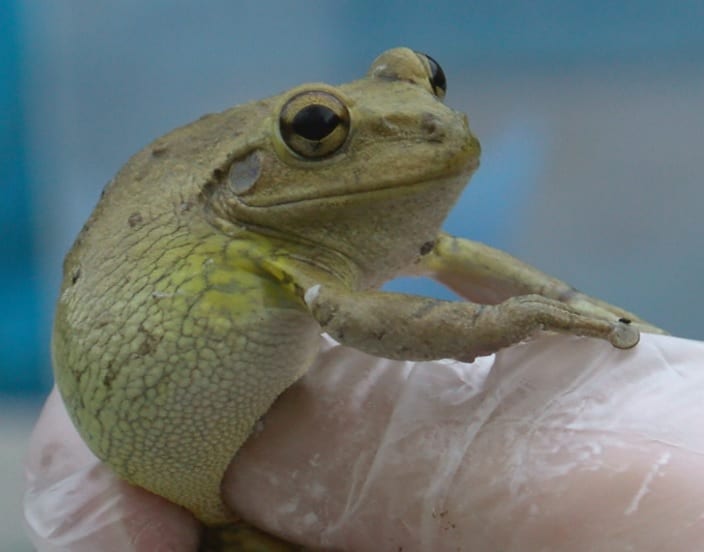Coming from the northwest Caribbean Islands Cuban treefrogs have been taking over Florida since the 1920s.
Over the last decade, they have slowly been migrating into South Louisiana.
Cuban treefrogs first came to New Orleans on palm trees imported from Florida following Hurricane Katrina.

Recently, some have also been hitching rides on boats and RV traveling from Florida to Louisiana.
Ecologists with the National Wetlands Research Center have been trying to track and capture them since they became established in the area within the last few years.
The problem with this species is that they grow bigger and reproduce much faster than our native treefrogs.
According to Brad Glorioso, an ecologist at the Wetlands, “what they saw in Florida is that the Cuban treefrog really became numerous you started to not see a lot of native treefrogs so they were displacing them.”
The tricky thing about the Cuban treefrog is that for the average person it is hard to tell the difference between them and native frogs so researchers are not being alerted by the public to know for sure just how widespread they are becoming in New Orleans and Acadiana.
But if you notice a rather large frog sticking to the side of a building or window it is a good chance it is a Cuban treefrog.
Ecologist advice people to wear gloves if they try to capture these frogs as their skin secretion is quite strong and can cause a burning irritation if you have an open cut or touch your face after handling them.
The best thing to do if you think you see one is to take a picture and email it to Glorioso at gloriosob@usgs.gov or you can call him directly at 337-266-8836.
For more information on Cuban treefrogs here are some great links.
https://www.usgs.gov/news/invasive-cuban-treefrogs-leap-out-florida-establish-first-known-population-louisiana
https://nas.er.usgs.gov/queries/FactSheet.aspx?speciesID=57

